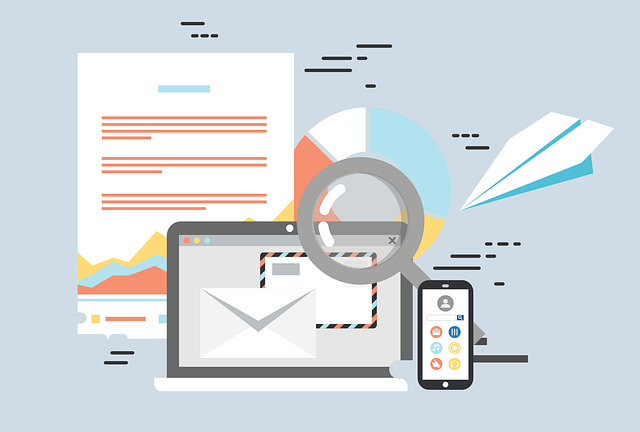AI metabolism tracking through wearable data is revolutionizing personalized nutrition by analyzing physiological responses to food. Using advanced algorithms, these tools interpret patterns in metrics like heart rate variability, skin conductance, and body temperature to provide insights into individual metabolisms. This allows users to make informed dietary decisions, adjust habits in real-time, and ultimately improve health outcomes and quality of life through data-driven nutrition plans. Biofeedback tools, integrating AI metabolism tracking with wearable devices, offer a cutting-edge approach to understanding unique metabolic profiles, optimizing athletic performance, supporting mental clarity, managing stress, and fostering healthier eating habits.
Biofeedback tools are transforming the way we understand our bodies’ responses to food. Leveraging AI and wearable technology, these innovative devices analyze metabolic insights gleaned from physiological signals, offering unprecedented control over nutrition. By tracking key indicators like heart rate variability and skin conductance, users can make informed dietary choices and optimize their overall health. This article explores the science behind biofeedback, its practical applications, and how AI metabolism tracking using wearable data is revolutionizing nutrition awareness.
- Unlocking Metabolic Insights: AI's Role in Analyzing Wearable Data
- The Science Behind Biofeedback: Tracking Physiological Responses
- Enhancing Nutrition Awareness: Practical Applications and Benefits
Unlocking Metabolic Insights: AI's Role in Analyzing Wearable Data

Biofeedback tools that leverage artificial intelligence (AI) are unlocking unprecedented metabolic insights by analyzing data collected from wearable devices. These advanced algorithms can track and interpret patterns in physiological responses to food, offering valuable information about an individual’s unique metabolism. By examining metrics like heart rate variability, skin conductance, and body temperature, AI models identify correlations between dietary intake and metabolic processes.
This technology empowers users to make data-driven decisions regarding their diets, tailoring nutrition plans to their specific needs. Moreover, the continuous monitoring facilitated by wearable tech allows for real-time adjustments, promoting healthier eating habits. AI metabolism tracking using wearable data has the potential to revolutionize personalized nutrition, ultimately leading to improved health outcomes and enhanced quality of life.
The Science Behind Biofeedback: Tracking Physiological Responses

Biofeedback tools leverage cutting-edge technology to measure our physiological responses to various stimuli, including food. At its core, biofeedback involves using sensors and wearable devices that capture real-time data on bodily functions such as heart rate, skin conductance, and brain waves. This data is then analyzed by AI algorithms to provide insights into how our bodies are responding to different foods and activities. By tracking these physiological changes, individuals can gain a deeper understanding of their unique metabolic profiles, enabling them to make more informed dietary choices that support optimal health.
AI-driven metabolism tracking using wearable data plays a pivotal role in this process. Wearable devices equipped with advanced sensors continuously monitor physiological markers, allowing users to detect subtle shifts in their bodies’ reactions to food. This proactive approach to nutrition enables individuals to fine-tune their diets based on tangible feedback, potentially leading to improved energy levels, digestion, and overall well-being. Moreover, by integrating this data into AI algorithms, we can personalize dietary recommendations, ensuring that each person receives tailored guidance aligned with their unique biological needs.
Enhancing Nutrition Awareness: Practical Applications and Benefits

Biofeedback tools offer a practical approach to enhancing nutrition awareness by providing real-time insights into physiological responses to food. These innovative devices, often incorporating AI metabolism tracking using wearable data, enable individuals to understand how their bodies process different nutrients. By monitoring metrics like heart rate variability, skin conductance, and body temperature, users gain valuable information about their dietary choices’ impact on overall health and well-being.
The benefits are multifaceted: from optimizing athletic performance and enhancing recovery to supporting mental clarity and stress management. This level of personalization fosters healthier eating habits by empowering individuals to make informed decisions based on scientific feedback. As these tools become more accessible, they have the potential to revolutionize personal nutrition, transforming the way we approach food and its interaction with our bodies in today’s digital era.
Biofeedback tools, powered by AI and wearing data, offer a revolutionary way to unlock metabolic insights and enhance nutrition awareness. By tracking physiological responses, these innovative devices provide valuable information on how our bodies react to different foods, enabling us to make more informed dietary choices. AI metabolism tracking using wearable data is transforming our approach to nutrition, fostering a deeper understanding of our unique biological needs and promoting healthier lifestyles.
